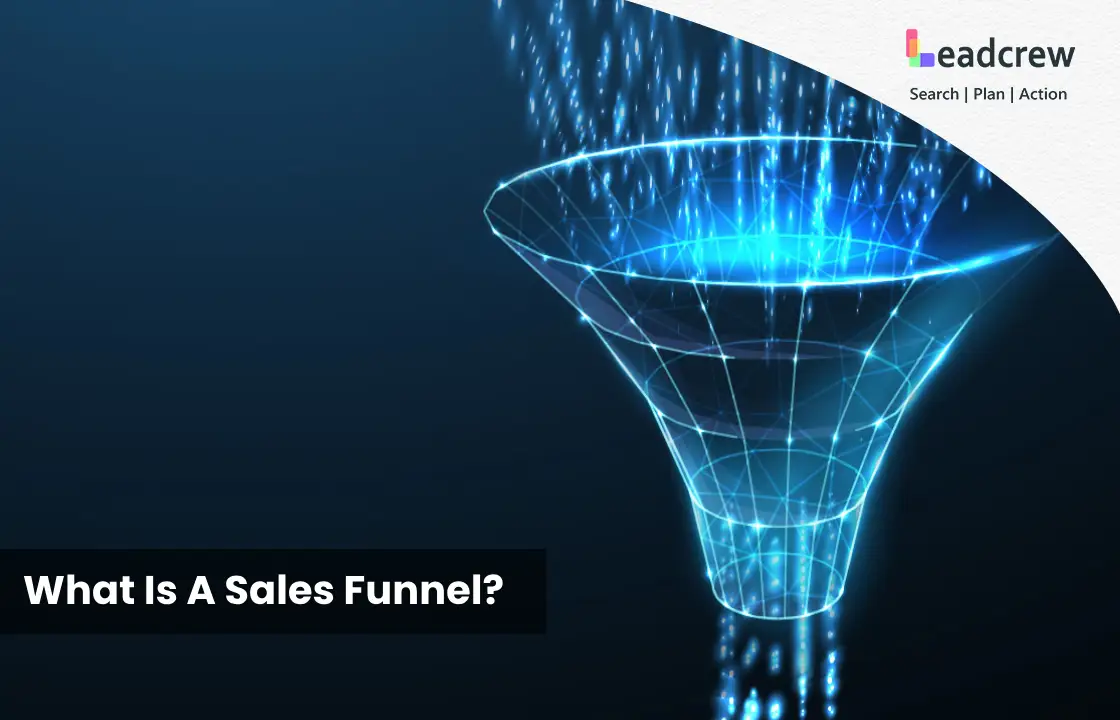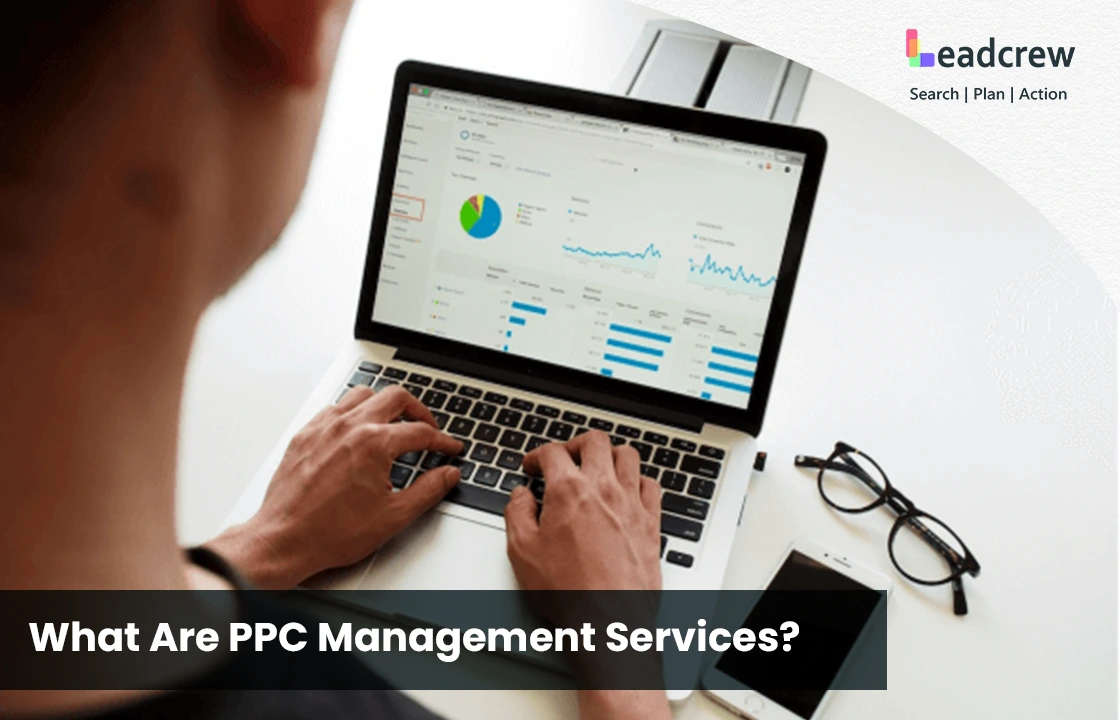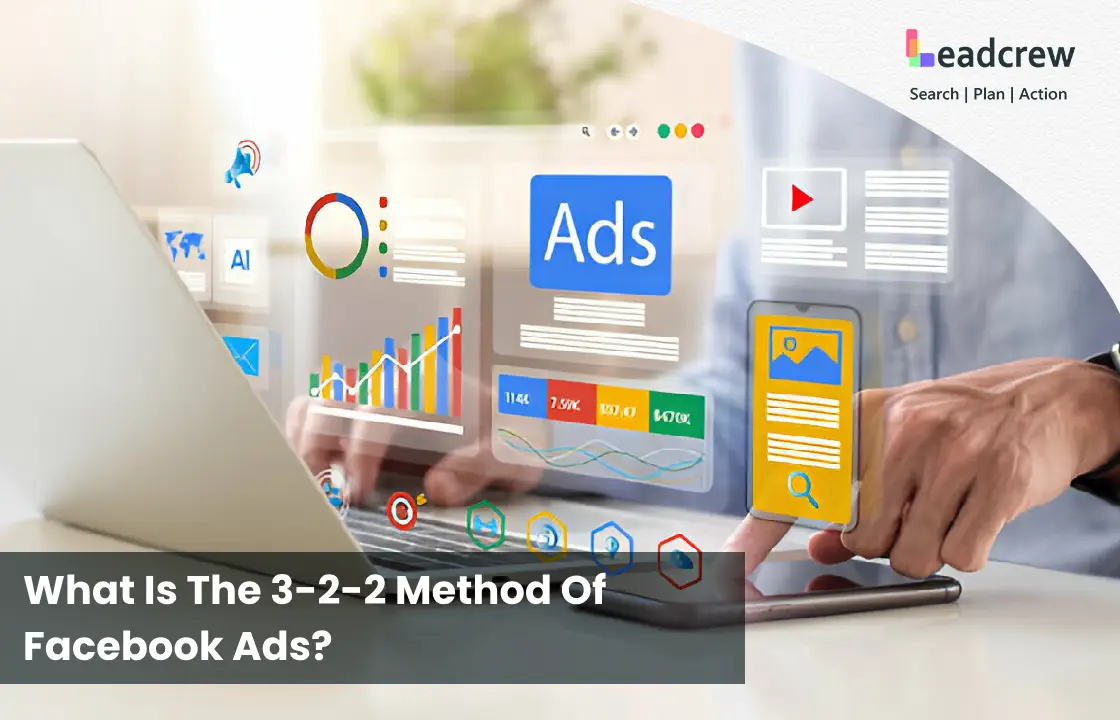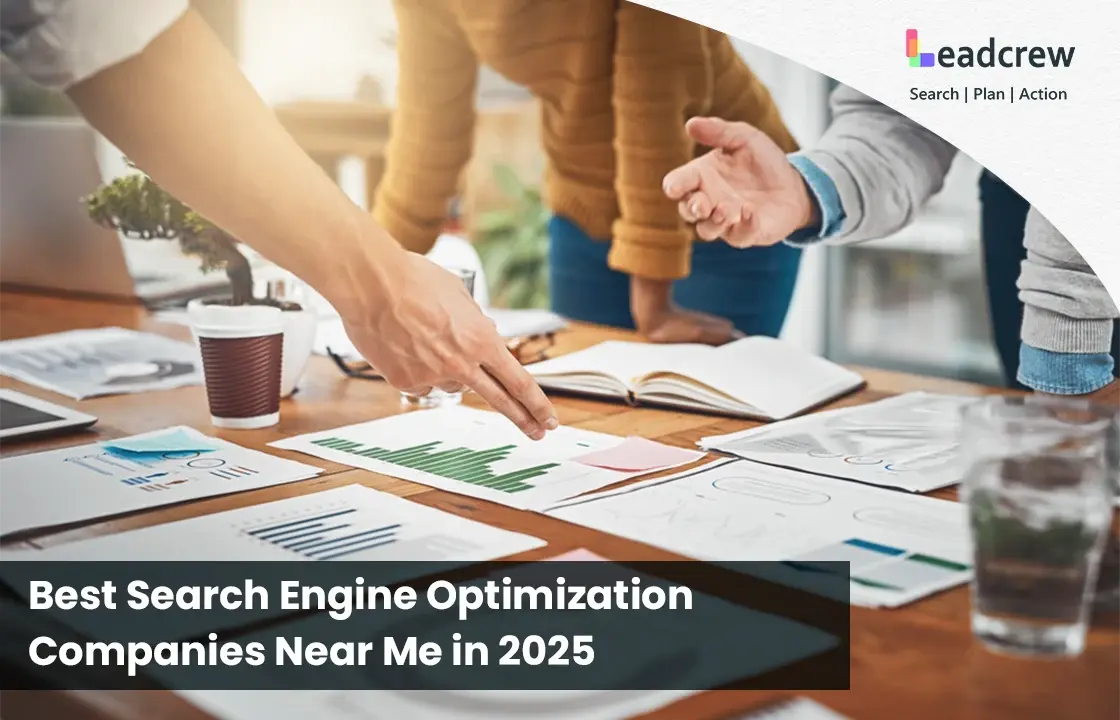In enterprise sales, having a structured approach is crucial for success. A sales funnel serves as a guide to convert prospects into paying customers. Read the blog to discover what is a sales funnel, who is a sales funnel important, and the proven tactics to craft an ideal enterprise sales funnel. We’ve also provided some examples of sales funnel to help you get started.
Table of contents:
- 1. What Is A Sales Funnel?
- 2. Click Funnel Vs Sales Funnel
- 3. The Importance Of Funnel Techniques In Sales
- 4. What Are The Stages Of A Sales Funnel?
- 5. How To Create Effective Funnel Techniques In Sales For Your Business?
- 6. Examples Of Funnel Techniques In Sales
- 7. Ensure Your Marketing Is Done Right With Leadcrew!
- 8. Frequently Asked Questions (FAQs)
What Is A Sales Funnel?
A sales funnel is a visual representation of the customer journey from the moment they become aware of your brand to the point where they make a purchase. The term “funnel” is used because, at each stage of the process, potential customers drop off, leaving only the most qualified leads at the bottom who eventually convert. If you’re confused about what is a sales funnel, then think of it as a series of steps designed to nurture prospects, build trust, and encourage them to take action.
Without a structured sales funnel, businesses may struggle to identify weak points in their sales process and miss opportunities to engage with potential customers effectively. This why you should consider relying on marketing services from an adept agency like Leadcrew.
Click Funnel Vs Sales Funnel
| Feature | Click Funnel | Sales Funnel |
| Introduction | A series of optimized landing pages guiding users toward a specific action. | The overall journey a customer takes from awareness to purchase. |
| Focus | Digital conversion through a streamlined process. | Multi-touchpoint customer journey across various channels. |
| Components | Landing pages, opt-in forms, upsells, and CTAs. | Ads, emails, content marketing, follow-ups, and sales teams. |
| Usage | Click Funnel is best for online businesses, lead generation, and digital product sales. | Used in both online and offline businesses for long-term customer engagement. |
| Goal | Helps convert visitors into leads or customers quickly. | Helps grow leads and build relationships to drive long-term sales. |
The Importance Of Funnel Techniques In Sales
Provides a Clear Roadmap:
A well-structured sales funnel offers businesses a systematic approach to managing customer interactions, ensuring that every prospect moves smoothly through the buying process. By defining each stage, businesses can create targeted strategies that guide potential customers toward making a purchase.
Improves Conversion Rates:
A sales funnel nurtures leads by addressing their needs at every stage, from initial awareness to final decision-making. Through personalized messaging, educational content, and follow-up strategies, businesses can build trust and credibility, ultimately converting more prospects into paying customers.
Optimizes Marketing Efforts:
Understanding where prospects drop off within the funnel allows businesses to refine their marketing strategies and improve engagement. By analyzing key metrics such as bounce rates, email open rates, and customer feedback, businesses can identify weak points and implement necessary adjustments.
Enhances Customer Retention:
A strong sales funnel doesn’t just focus on acquiring new customers—it also includes strategies to retain and upsell existing ones. By maintaining post-purchase communication, offering exclusive deals, and providing exceptional customer service, businesses can foster long-term relationships that drive repeat purchases and brand loyalty.
Creates Customer-Centric Experiences:
A tailored sales funnel enhances customer experiences by delivering relevant content and personalized interactions at every stage, ensuring satisfaction and brand loyalty.
What Are The Stages Of A Sales Funnel?
A standard sales funnel consists of several key stages, each representing a crucial phase of the buyer’s journey. Understanding these stages allows businesses to implement effective strategies that guide prospects toward becoming loyal customers.
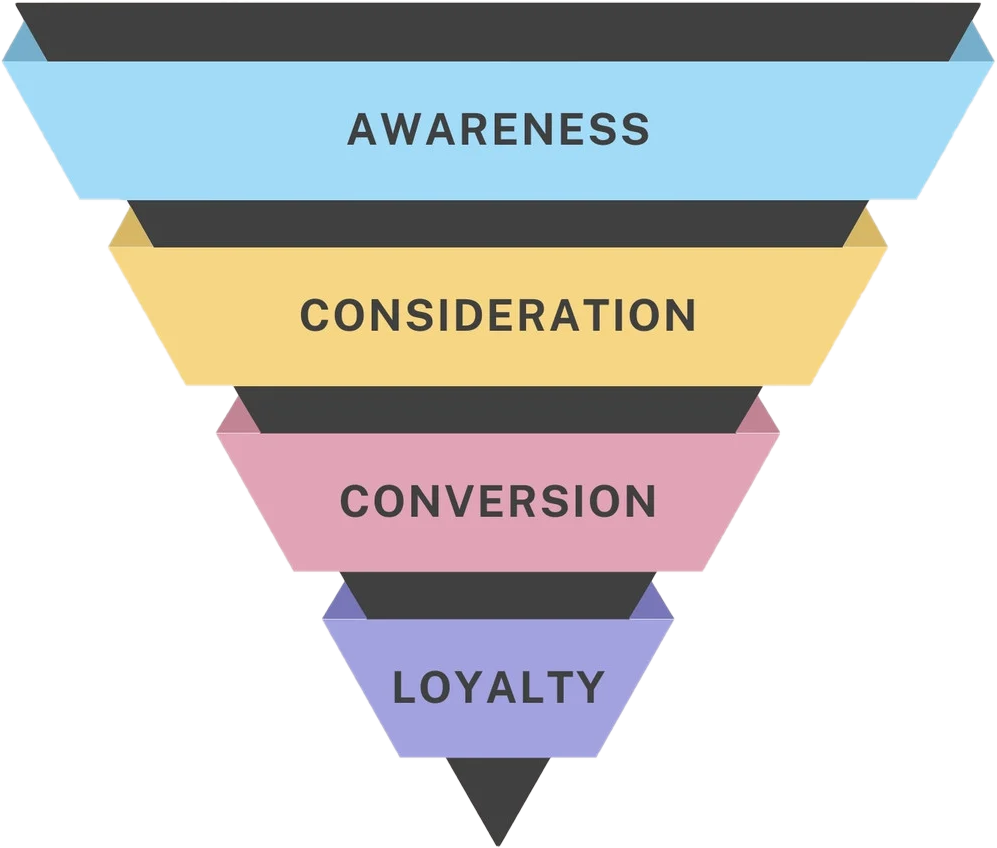
Awareness Stage:
The awareness stage is the top of the funnel (TOFU), where potential customers first discover your brand. This could happen through various marketing channels such as social media, search engine results, content marketing, word of mouth, or paid advertising. At this stage, the goal is to capture attention and spark curiosity about your business.
Strategies: Businesses can increase brand visibility through content marketing (such as blog posts, videos, and infographics), search engine optimization (SEO), pay-per-click (PPC) advertising, social media engagement, and influencer partnerships. Consistently providing valuable content and maintaining an active online presence help establish brand authority and attract potential leads.
Interest Stage:
In the interest stage, prospects have shown curiosity about your offerings. They may engage with your content, sign up for newsletters, follow your brand on social media, or participate in discussions related to your industry. At this point, businesses should focus on deepening engagement and providing educational value.
Strategies: Effective tactics include offering lead magnets (such as free eBooks, whitepapers, or industry reports), email marketing campaigns, hosting webinars, providing educational blog posts, and using interactive tools like quizzes or assessments. These strategies help nurture leads and build trust.
Consideration Stage:
At the consideration stage, leads are actively evaluating your product or service, comparing it with competitors, and determining whether it meets their needs. They are seeking information that will validate their decision and give them confidence in your brand.
Strategies: Businesses can provide case studies, product demos, free trials, customer testimonials, detailed product guides, and expert consultations. These elements help demonstrate the value of the product and alleviate potential concerns or objections.
Decision Stage:
At this crucial phase, businesses must ensure a seamless and persuasive buying experience to finalize the sale. The focus should be on reinforcing trust and addressing any last-minute hesitations.
Strategies: Personalized consultations, special discounts, limited-time offers, transparent pricing comparisons, money-back guarantees, and exceptional customer support can help drive conversions. Providing a smooth checkout process and flexible payment options can also increase the likelihood of a successful transaction.
By effectively managing each stage of the sales funnel, businesses can attract, convert, and retain customers, ensuring long-term success and sustainable growth.
How To Create Effective Funnel Techniques In Sales For Your Business?
Building a high-performing sales funnel requires a well-planned strategy. Follow these steps to create an enterprise sales funnel that converts:
Identify Your Target Audience:
- Understanding your ideal customer’s pain points, needs, and behaviors helps you craft a funnel that resonates with them.
- Use buyer personas to define demographics, interests, and challenges.
Create Awareness Through Strategic Marketing:
- Invest in SEO, content marketing, and PPC campaigns to attract potential customers.
- Use social media to engage and interact with your audience.
- Leverage video marketing and influencer collaborations to expand reach.
Generate Leads with High-Quality Content:
- Offer lead magnets such as e-books, whitepapers, or webinars to capture contact information.
- Use email marketing to nurture leads and guide them through the funnel.
- Implement interactive tools such as quizzes or free assessments to increase engagement.
Nurture Leads with Engaging Content:
- Send personalized emails, case studies, and testimonials to build trust.
- Address objections and concerns to move prospects closer to conversion.
- Provide AI-powered chatbots or live support to answer questions in real-time.
Optimize the Sales Process for Conversions:
- Streamline the buying process by offering a user-friendly experience.
- Use chatbots, AI-driven recommendations, and CRM systems to enhance the sales journey.
- Implement remarketing strategies to recapture lost leads.
Focus on Customer Retention and Upselling:
- Keep customers engaged through follow-up emails, loyalty programs, and value-added services.
- Encourage satisfied customers to provide referrals and testimonials.
- Use predictive analytics to recommend relevant products or services based on past purchases.
Examples Of Funnel Techniques In Sales
To illustrate how an enterprise sales funnel works in real life, here are a few examples:
Sales Funnel Example: 1 - Saas Sales Funnel
Awareness: A software company attracts visitors through blogs and LinkedIn ads.
Interest: Visitors sign up for a free trial.
Consideration: Email campaigns and case studies are sent to nurture leads.
Decision: Sales reps offer a personalized demo and a special discount.
Sales Funnel Example: 2 - E-Commerce Sales Funnel
Awareness: A fashion brand runs Facebook and Instagram ads.
Interest: Visitors browse products and sign up for email discounts.
Consideration: Abandoned cart emails remind users of their selections.
Decision: A limited-time offer drives the purchase.
Sales Funnel Example: 3 - B2b Business Sales Funnel
Awareness: A B2B consulting firm generates leads through LinkedIn articles.
Interest: Leads sign up for a free strategy session.
Consideration: Whitepapers and client success stories build trust.
Decision: A proposal and personalized follow-up seal the deal.
Ensure Your Marketing Is Done Right With Leadcrew!
A well-structured sales funnel is the key to converting prospects into long-term customers. The marketing experts at Leadcrew specialize in crafting high-converting sales funnels that drive growth and maximize revenue. Whether you’re looking to refine your existing funnel or build one from scratch, our expert marketing team is here to help. Contact us today to take your business to the next level!
Frequently Asked Questions (FAQs)
Why is the sales funnel necessary for my business?
A sales funnel helps businesses guide potential customers through a structured process that increases conversion rates and maximizes sales.
Does it take a long time to build an effective sales funnel?
The time varies based on business complexity, but it typically takes a few weeks to a few months to optimize a sales funnel.
Can a sales funnel work for small businesses?
Yes, sales funnels can be tailored to fit businesses of all sizes, from startups to large enterprises.
What tools can help automate a sales funnel?
CRM software, email automation tools, chatbots, and analytics platforms can help streamline and optimize sales funnels.
What is the best way to determine whether my sales funnel is working?
To evaluate your funnel's performance, track key metrics such as conversion rates, lead generation, and customer retention.
